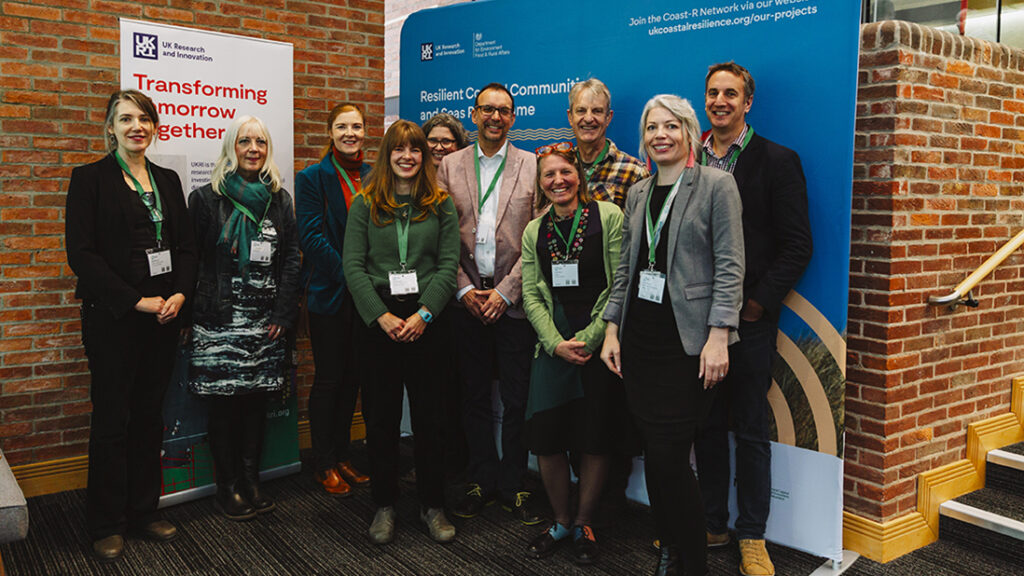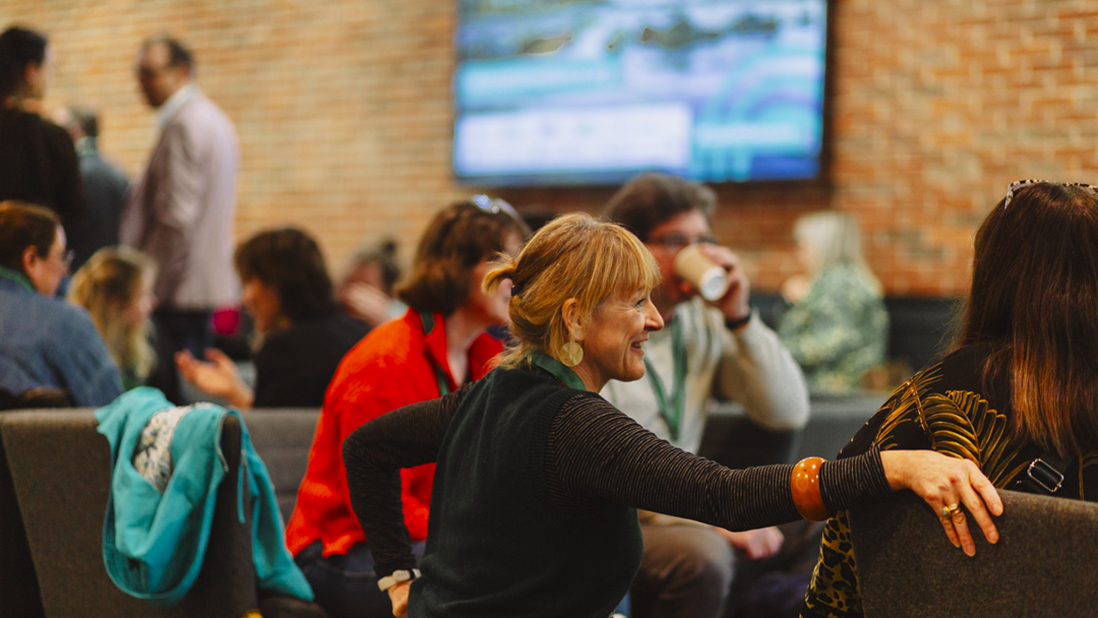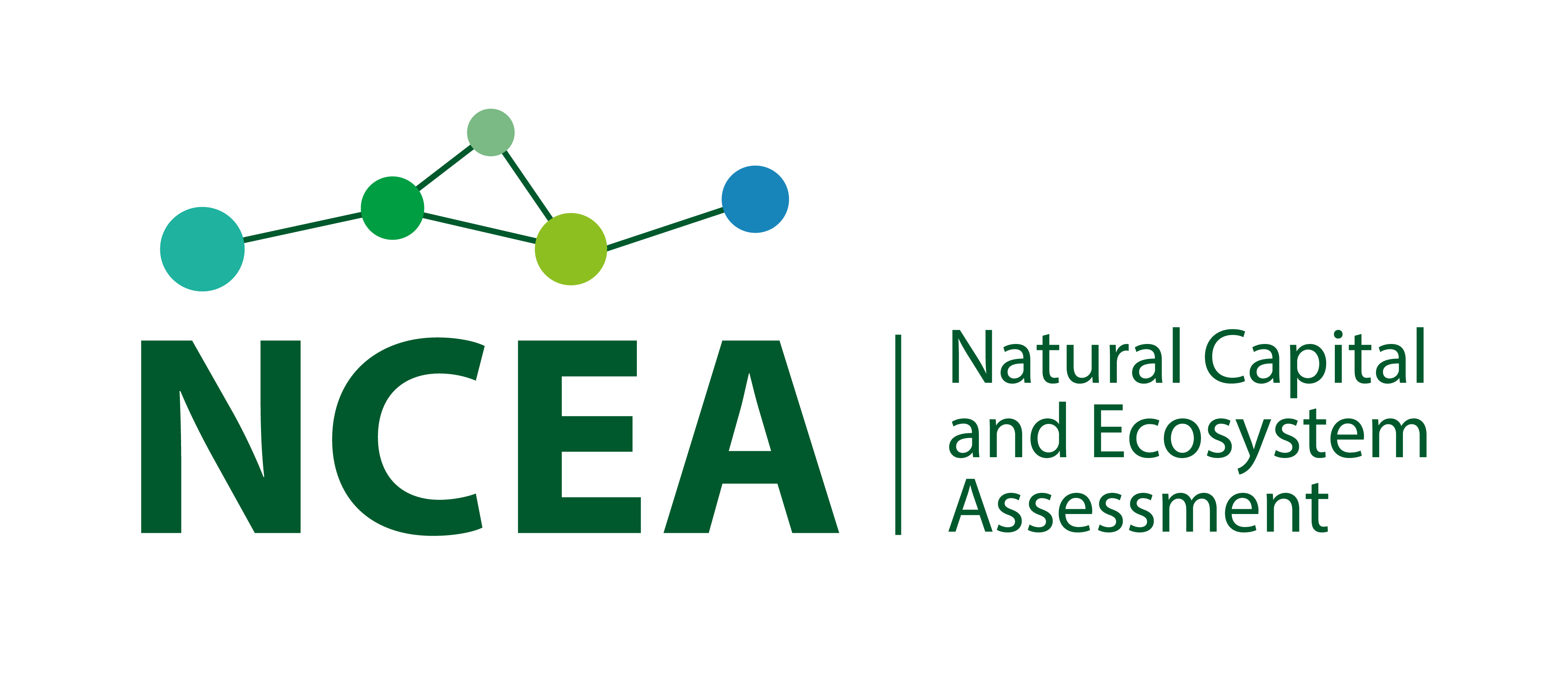Prof Briony McDonagh, UK National Lead for the Coast-R Network reflects on our November launch event at the University of Hull.
On Tuesday 5th and Wednesday 6th November, we welcomed more than 140 people to Hull to launch the UKRI and DEFRA-funded Resilient Coastal Communities and Seas Programme and the coordinating Coast-R Network.
The acronym Coast-R stands for Coastal Communities and Seas Together for Resilience, but we’ve quickly adopted the shorthand seen on our logo and website. The new £2M network is an inclusive and collaborative community of practice working to build knowledge, action and resilience for UK coastal communities and seas. Over the next few years, we’ll be working alongside a diverse range of partners, stakeholders, voluntary sector organisations and communities most affected by coastal change to champion and coordinate research and knowledge exchange in this space.
We opened proceedings with a launch dinner at The Deep in Hull city centre on the evening of Tuesday 5th November. Rather appropriately, attendees were treated to reception drinks in front of bioluminescent jellyfish in a twilight visit to The Deep’s aquarium exhibitions. They were welcomed to dinner by Prof. David Petley, Vice Chancellor of the University of Hull, who spoke about his own experiences researching coastal landslides in the UK and across the world.
On Wednesday, the Coast-R Network was officially launched by Emma Hardy MP, Parliamentary Under-Secretary of State (Minster for Water and Flooding). In a recorded speech, Emma reflected on the complex and interconnected challenges facing our coastal and estuarine communities as they live with climate change, increased flood risk and coastal erosion, as well as the work being undertaken by DEFRA, the Environment Agency, the Coast-R Network, and others in addressing these challenges.
Andrew Telford from the Economic and Social Research Council then introduced the Resilient Coastal Communities and Seas Programme (ReCCS for short), while I offered an overview of the Network’s aims and objectives for the period 2024-2028. This was followed by a round table panel discussion chaired by Stuart McLelland and involving 7 speakers from a range of organisations, who reflected on actions and solutions to enhance coastal and marine resilience across the UK. They were: Louise Barker (Royal Commission on the Ancient and Historical Monuments of Wales); Peter Lawrence (The Crown Estate); Susana Lincoln (Cefas); Beccy MacDonald-Lofts (Local Government Association Coastal Special Interest Group); Ailsa Mackay (National Centre for Resilience, Scotland); Clive Walmsley (National Resources Wales); and Imogen Wood (National Trust).
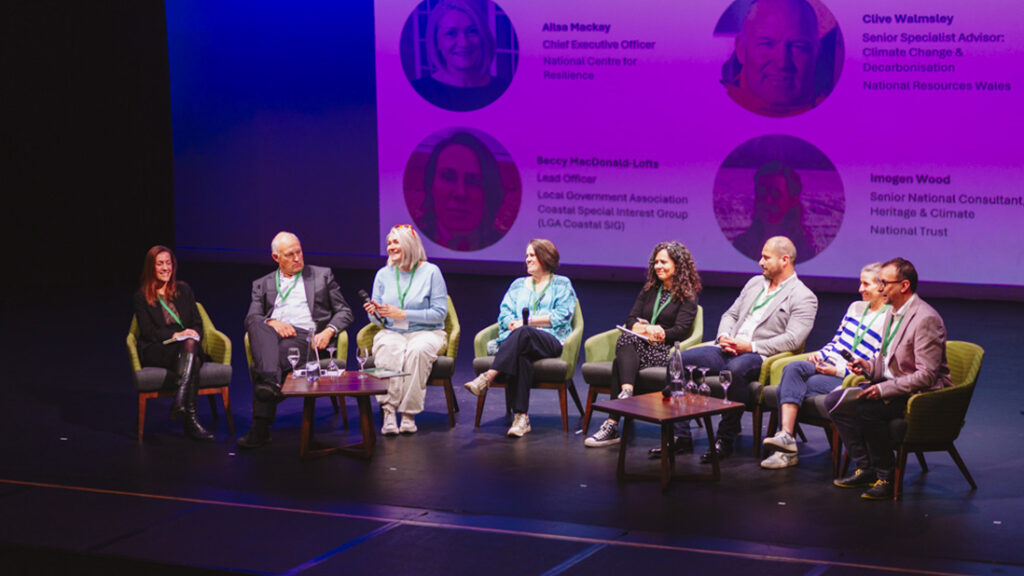
Over an extended networking lunch, participants got the chance to meet the teams leading the ReCCS Programme large research projects. Prof Kate Spencer and colleagues from the RACC project (on the combined risks of climate change, coastal erosion and historic landfills) hosted a stand alongside Prof Tim Acott from the TRACC project, which is working to develop a UK-wide ‘resilience assembly’. On the other side of the room, Prof Gina Yannitell Reinhardt talked with participants about the ARISE project’s practical interventions for resilience building along the Norfolk to Kent coastline, while Prof David Atkinson and Prof Jim Gilbert spoke on behalf of the TRANSECTS project, which will be exploring energy transitions, past, present and future.
In the afternoon session, participants took part in three workshops which showcased some of the creative and participatory approaches we will be using throughout the Coast-R Network and ReCCS projects. Sessions included our Collaborative Coastal Enquiry, facilitated by Prof Fraser Sturt and others, where participants worked in small groups to respond to a range of coastal challenges, including generating actions for the Coast-R Network community of practice.
In further articles on our website, Dr Sarah Gamble and Dr Kate Smith reflect on their experiences facilitating a ‘hands on’ space for Deep Mapping the Coast-R and related networks, while Prof Stephanie Jones and colleagues outline some of their learning from the Living Glossary session. Outputs from the workshops, including an interactive map and the glossary, will be added to our growing digital engagement platform at ukcoastalresilience.org over the months ahead, building a resource for our developing community of practice.
Reflecting on the day in the month since it happened, I can honestly say I was inspired by the knowledge and experience in the room, the incredible goodwill between partners, and the collective commitment to negotiating the urgent challenges at our coasts. Importantly, this provides a mandate for collective action and a meaningful basis for future cooperation and collaboration.
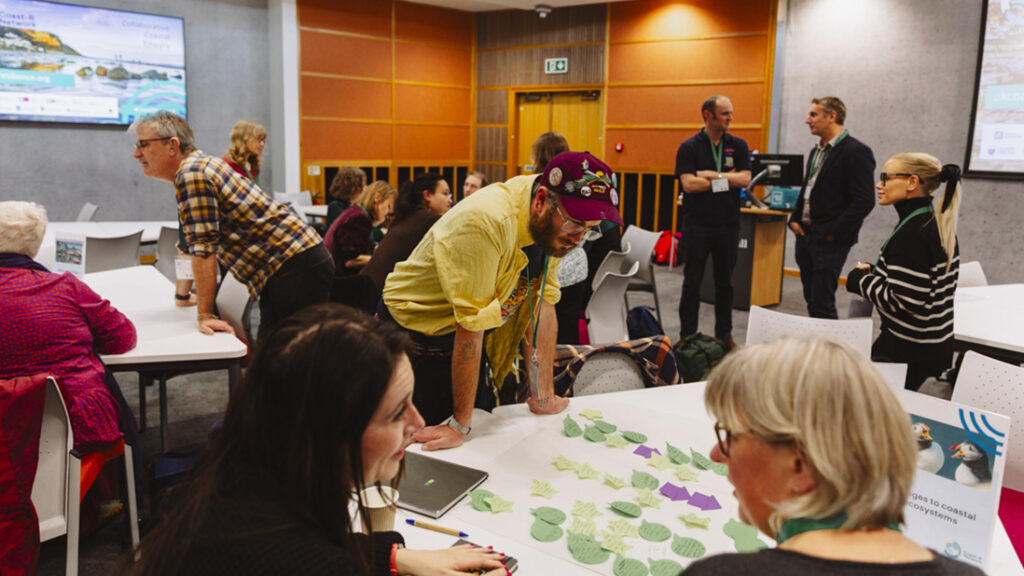
What’s next?
With the winter break now rapidly approaching, the team are looking forward to taking this work forward in 2025 and beyond. Next year kicks off with an online workshop for ReCCS co-investigators in January and our Dialogues Training retreat in Aberystwyth in March. We’ll be back with an event aimed at Coast-R Network members later in the spring, when the first round of our Flexible Fund also opens to applications. Then in September, we’re in Glasgow to start Y2 of the Coast-R Network. Save the dates in your calendars now and join us in person to collaborate, share insights and explore synergies across the wider Network.
We’ll keep you informed about all our activities and opportunities via our mailing list. We are planning regular newsletters like this one, as well as new opportunities for lunchtime talks and knowledge sharing. If you’ve got training needs or ideas you haven’t yet told us about, do feel free to reach out.
Finally, if there are others who’d like to join in the Coast-R Network, do feel free to share this link, our newsletter or socials and/or encourage them to sign up by emailing CoastR@hull.ac.uk. We’ll be delighted to welcome everyone on board!
